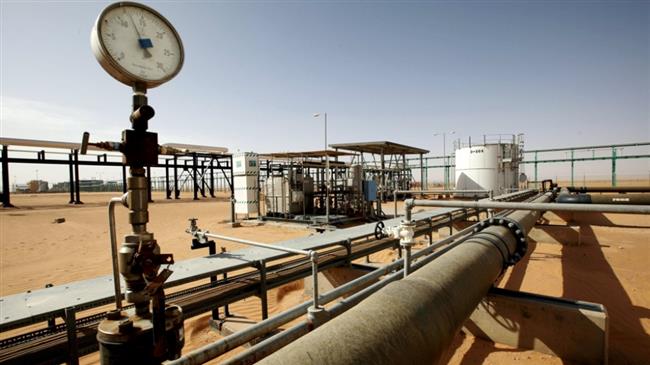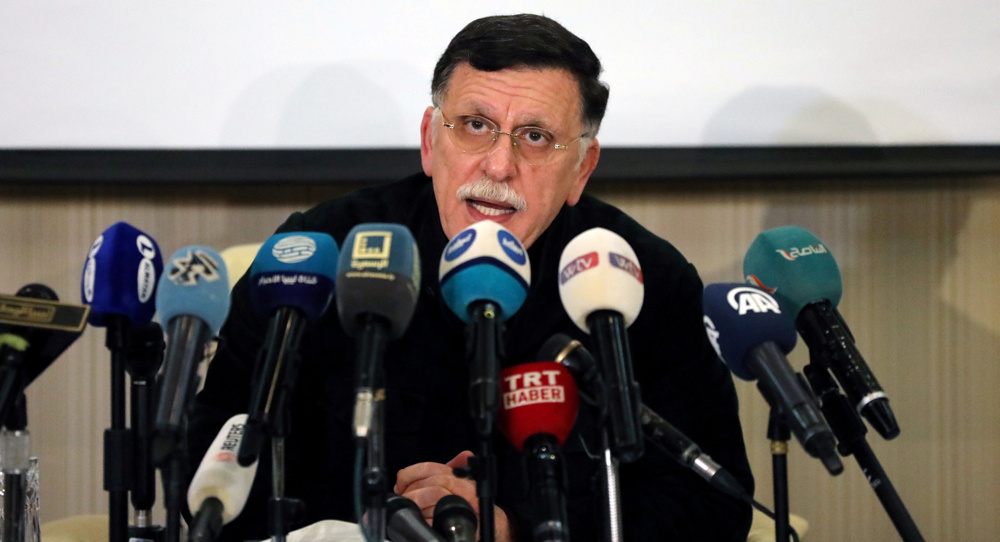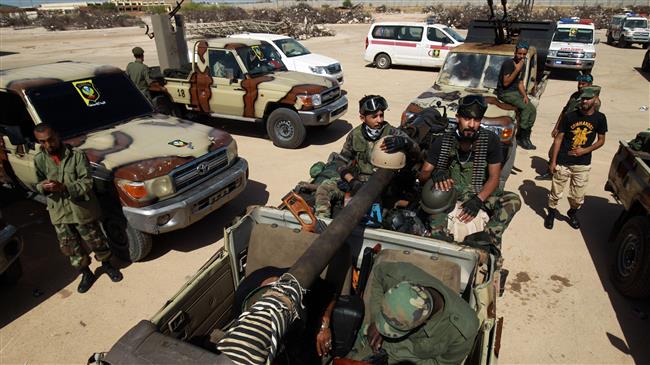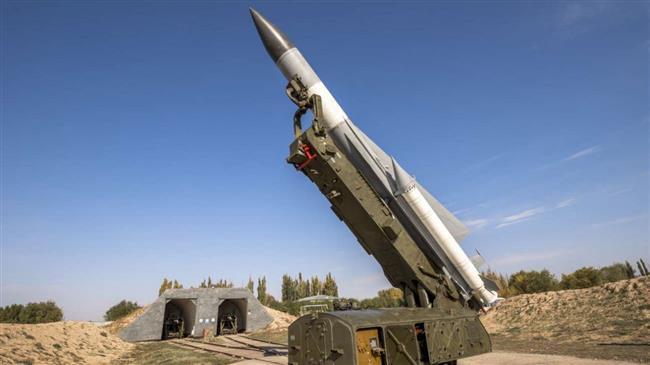Libya’s NOC announces oil production, export in ports without Haftar’s rebels
Libya’s national oil company has resumed oil production and export from eastern terminals that are free from the presence of rebel forces under the command of renegade general Khalifa Haftar.
Libya’s Tripoli-based National Oil Corporation (NOC) announced on Saturday that it had lifted a “force majeure” on what it deemed secure oil ports and facilities in the country, but said the measure would remain in place for facilities controlled by Haftar’s forces and fighters allied with the renegade general.
"Force majeure continues in oil fields and ports where the presence of fighters … and other armed groups that obstruct the activities and operations of NOC is confirmed," the oil company said in a statement posted on its Facebook page.
Force majeure refers to unexpected external circumstances that prevent a party to a contract, in this case the NOC, from meeting its obligations in the field of oil production, oil export and the ensuing financial transactions.
The NOC is the only Libyan firm that can produce and sell oil under United Nations-endorsed agreements, which stipulate that revenues from the sales must flow into the Central Bank of Libya in Tripoli.
Haftar’s rebels have on several occasions in the past agreed and then shortly after declined to lift the blockade on the Libyan oilfields, saying the ban would remain in place until their demands were met on the distribution of the country’s oil income.
Pro-Haftar forces say proceeds from oil sales should be fairly distributed among all Libyan regions and not just fund the sectors of the Tripoli government.
Haftar agrees to lift Libya oil blockade
The Saturday move by the Libya’s national oil company comes a day after the Libyan rebel commander announced the lifting of eight-month blockade on the eastern oil terminals.
"I announce the resumption of production and export of oil with all the necessary conditions and procedural measures that ensure a fair distribution of its financial revenues," Haftar said in a televised address.
Ahmed Maetig, the deputy prime minister of the Libyan government in Tripoli, for his part, said a committee would be formed to ensure a fair distribution of oil revenues.
Last week, protests broke out in the eastern Libyan city of Benghazi, one of the rebels’ strongholds, and several other cities over electricity and fuel shortages exacerbated by the Haftar-imposed blockade against most of the country's oil facilities.
Libya — which sits atop the largest oil reserves in Africa — has been forced to stop oil production since the rebel forces took control of the export terminals and fields in the east in January and launched a push to squeeze resources of the Tripoli government.
The violence-wracked country used to produce nearly 1.2 million barrels per day last year but that figure plunged to about 90,000 daily barrels since the rebel forces forced the halt to the operations at the eastern oilfields and ports. The blockade has cost the North African nation at least eight billion dollars.
Libya first plunged into chaos in 2011, when a popular uprising backed by a NATO intervention led to the ouster of long-time leader Muammar Gaddafi.
Two rival seats of power have emerged in Libya since 2014, namely the internationally-recognized government run by Prime Minister Fayez al-Sarraj, and the parliament based in the eastern city of Tobruk, supported militarily by Haftar’s rebels.
The Libyan rebels are supported by the United Arab Emirates (UAE), Egypt, and Jordan. They launched an unsuccessful military offensive to seize the capital, Tripoli, and unseat the government in April 2019.
The Libyan military has undone many of the rebels’ gains with crucial support from its own patron, Turkey.
Iran activated new centrifuges in response to IAEA resolution: Parl. speaker
Nov. 23: ‘Axis of Resistance’ operations against Israeli occupation
Lindsey Graham threatens to sanction US allies backing ICC arrest warrants
VIDEO | Tens of thousands of Catalans protest to demand access to better housing
Israel launches air strikes on Syria-Lebanon border crossing
Russia: Comprehensive deal with Iran will include defense, security ties
VIDEO | Israeli embassy shooting in Jordan leaves gunman dead, 3 police injured
VIDEO | Paris march in support of Palestine women




















 This makes it easy to access the Press TV website
This makes it easy to access the Press TV website